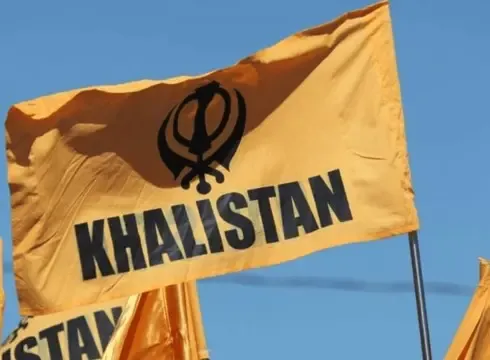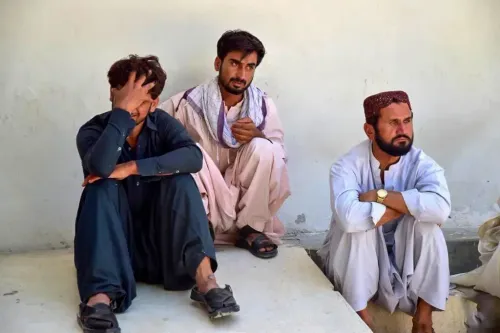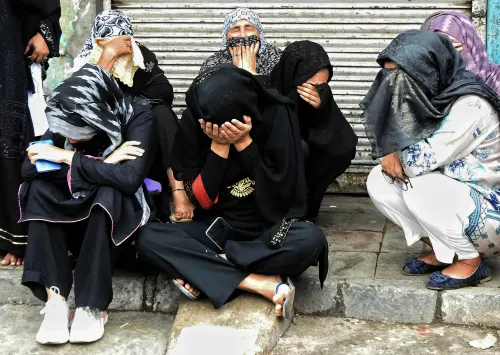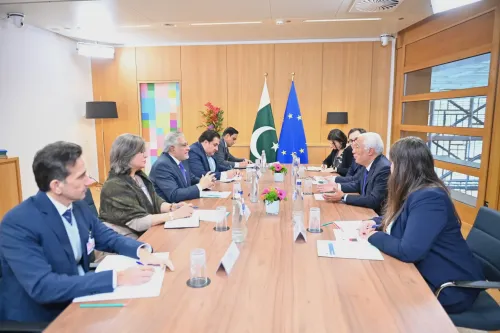Is the UK Becoming an Operational Hub for Khalistan Modules After Canada's Crackdown?

Synopsis
Key Takeaways
- Khalistani factions are under scrutiny following Canada's crackdown.
- Canada has classified the Lawrence Bishnoi gang as a terrorist organization.
- Concerns are rising about these groups potentially relocating to the UK.
- The UK has a significant Sikh population, but not all support the Khalistan movement.
- India is keen on cooperating with the UK to address these threats.
New Delhi, Oct 6 (NationPress) As India and Canada navigate a renewed partnership, Khalistan factions are facing increasing concerns. Canada's actions reflect intelligence shared by India, highlighting the serious nature of this issue.
A pivotal moment was Canada’s designation of the Lawrence Bishnoi gang as a terrorist organization. Enhanced cooperation between India and Canada is leading to a broader crackdown on Khalistani elements, prompting concerns that these groups may be shifting their operations to the United Kingdom, as per Intelligence Bureau officials.
In the UK, these factions enjoy a notable support base, although they lack the stronghold they have in Canada. The UK has a rich history linked to the Khalistan movement, evident from frequent protests outside the Indian High Commission and multiple referendums held over the years.
Recent disruptions include attempts to halt the screening of the film Emergency, with theater managers facing backlash for their perceived inaction. Khalistani supporters have also protested during the visit of India’s Foreign Minister, Dr. S. Jaishankar, to the UK.
Moreover, the UK Charity Commission recently permitted a British Gurdwara to maintain plaques with the word Khalistan. Despite India's repeated objections, the UK has upheld the principle of free speech.
Conversely, Canada is addressing the financial aspects of this issue, focusing on charities linked to the Khalistani terror network. A recent report from the Canadian Finance Ministry categorized Khalistan-related terrorism alongside groups like Hezbollah and Hamas, indicating a serious acknowledgment of the threats posed.
Consequently, Indian agencies believe that a significant portion of Khalistani operations may migrate to the UK, particularly as no substantial actions have been taken against them there. This perception of safety could embolden these groups.
While the majority of Sikhs do not endorse the Khalistan movement, there remains a substantial segment of support within the community. The 2021 census identified approximately 525,865 Sikhs in the UK, making it home to the second-largest Sikh diaspora globally, following Canada.
Indian officials emphasize that pro-Khalistani activists have avoided severe repercussions due to their current activities being limited to protests and minor violence. However, should these groups begin relocating their planning and terror operations from Canada to the UK, it would pose a significant challenge for British authorities.
In such a scenario, the UK would be compelled to act, as these activities would jeopardize national security. Indian officials express confidence in persuading the UK to collaborate effectively, as witnessed in their dealings with Canada.
The recent transition in Canadian leadership, with Mark Carney succeeding Justin Trudeau, has resulted in improved ties between India and Canada, encompassing both security and economic discussions.
The emergence of Khalistani factions in the UK presents a troubling prospect for India. After gaining the upper hand in Canada, India is keen to prevent additional challenges arising from the UK.
UK Prime Minister Keir Starmer is set for his inaugural official visit to India on October 8 and 9. While trade and economic matters will be discussed, security issues, particularly relating to Khalistan, will be a primary focus for India. Indian officials are hopeful that the UK will recognize the seriousness of this issue and take appropriate actions.
India is prepared to share all pertinent information regarding these factions to facilitate UK action.









